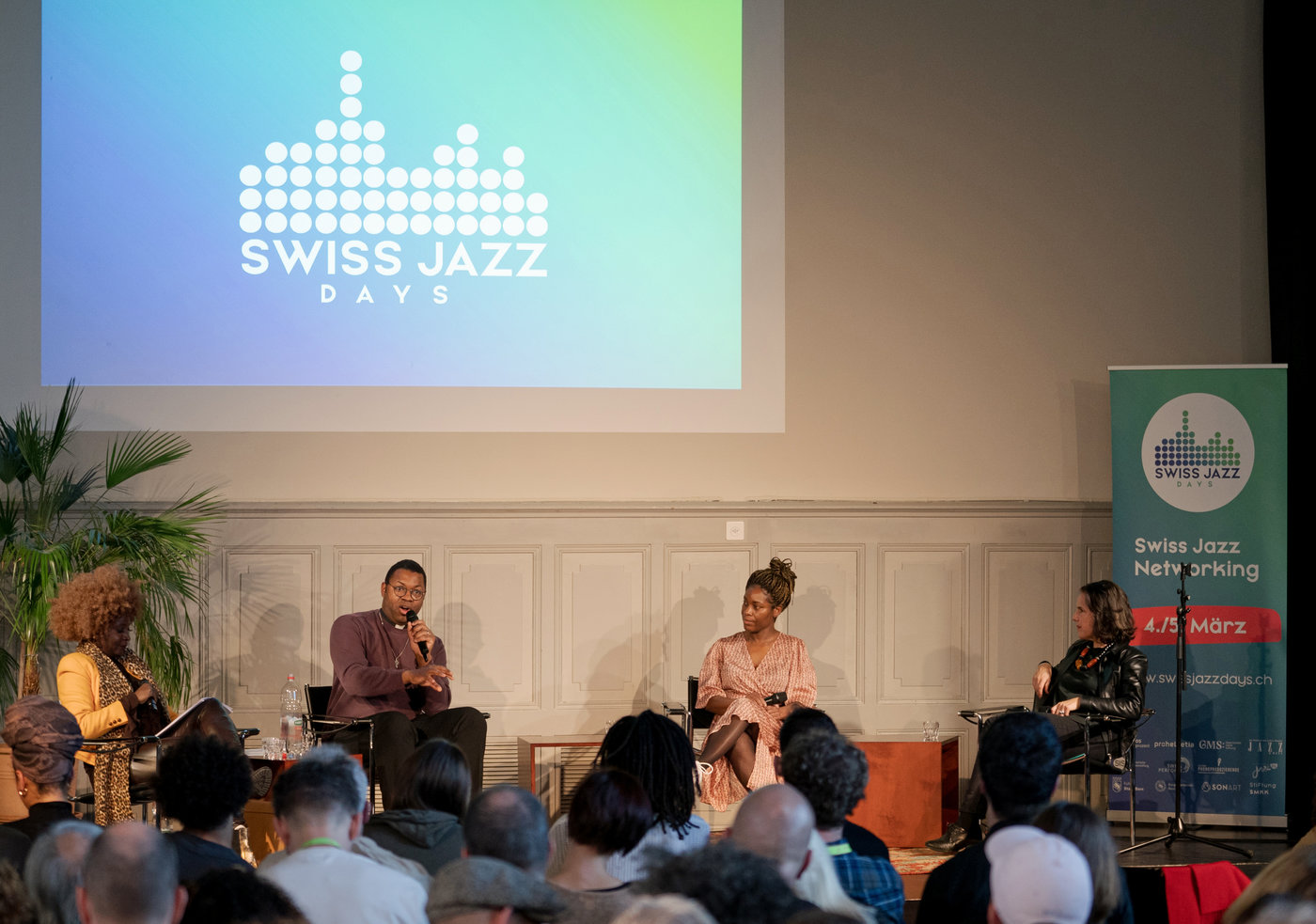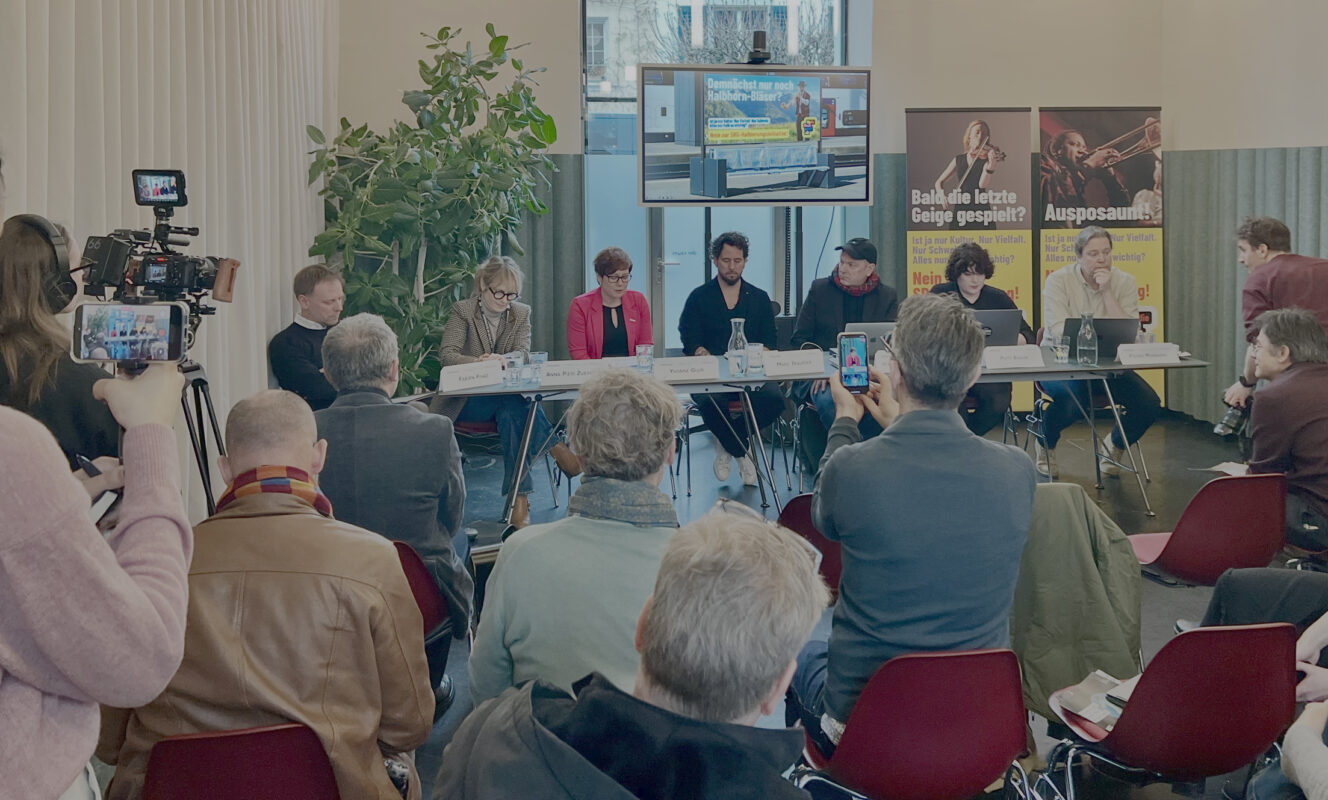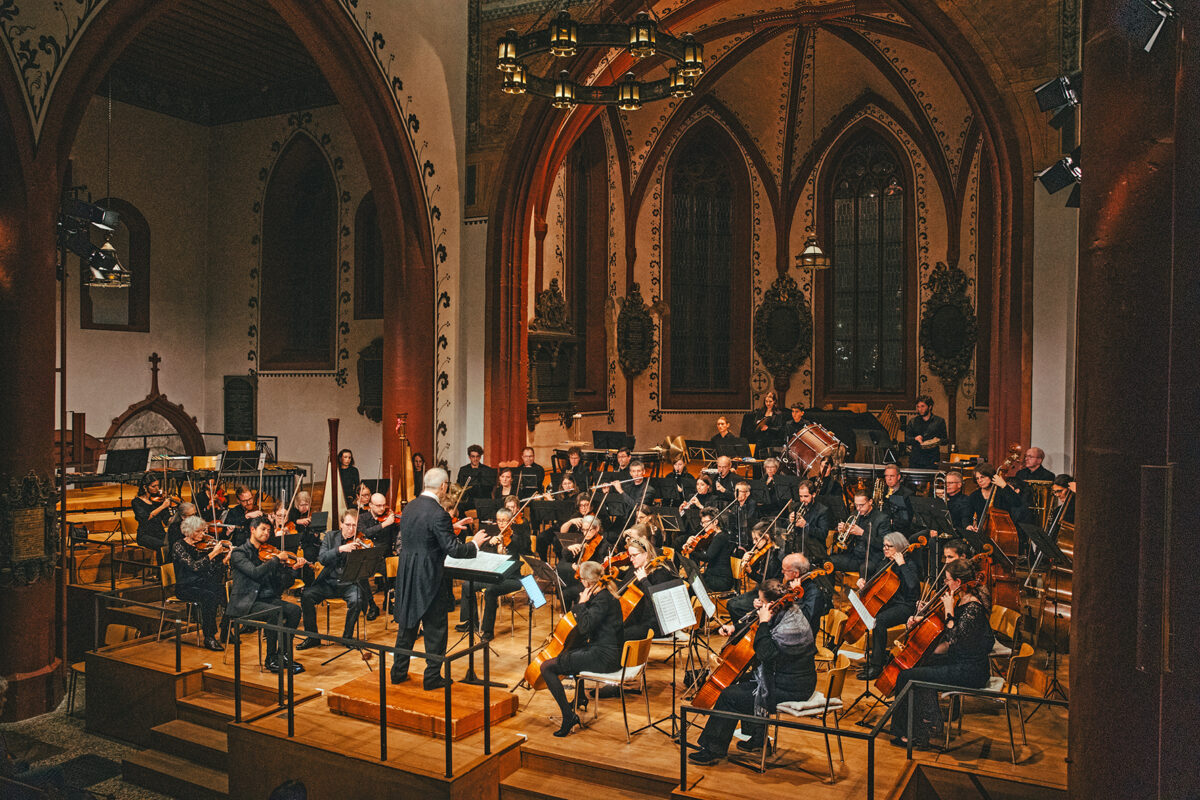Recognizing the roots of jazz
Decolonization in jazz was one of the central themes at the 2nd Swiss Jazz Days in Bern. The two-day event met with a great response.

At the Progr in Bern, the venue for the second edition of the Swiss Jazz Daysadditional chairs had to be carted in on March 4. "I didn't think that Saturday afternoon would be so full," admitted Christoph Jenny, one of the two initiators of the two-day event. The great interest was probably due not least to the controversial programme item "Decolonization & Antiracism in the Swiss Jazz Scene". Its presenter, Apiyo Amolo, began by telling the audience that she was once forced to part with her dreadlocks in Switzerland and that although she likes to yodel, she deliberately doesn't wear traditional Swiss costume. This is how she expresses her affection for the country that has been her home for 23 years now. "I practice cultural appreciation and not cultural appropriation," emphasized the intercultural mediator.
Place of birth: New Orleans
During the panel chaired by Amolo, Louisiana-born Reverend Scotty Williams looked back on the history of the origins of jazz: "The slaves in New Orleans had Sundays off, met on Congo Square and expressed their feelings through music." The term jazz was subsequently coined to describe this sound - initially in a derogatory way.
Afi Sika Kuzeawu, who grew up in Togo and trained in Bern, emphasized that jazz cannot be understood exclusively from a white perspective. "During my studies, I was often told that if I couldn't read music, I wouldn't be able to play it. But that comes easily to me." In order to decolonize jazz on a pedagogical and practical level, she is convinced that it is necessary to facilitate access to the local education system. "Due to a lack of certificates, Ella Fitzgerald would not be allowed to teach jazz in Switzerland." Some Swiss musicians, on the other hand, are said to be worried that they will no longer be allowed to make jazz due to accusations of cultural appropriation. According to the presenter, this is an unfounded fear: "Anyone who plays jazz should, however, recognize where the roots of this genre lie."
Explosive topics, a large audience
The Swiss Jazz Days 2023 are now history again. "We were able to record an increase in the number of visitors," says co-founder Simon Petermann. He attributes the fact that we were able to welcome around 170 visitors this year to "good speakers and good topics", among other things. In addition to the discussion on decolonization in jazz, the issue of social security was met with considerable interest. "This proves that we need to pay a lot of attention to the topics in the future."
For the second edition of the Swiss Jazz Days, the burden has now been spread over several shoulders. "Our organization team currently consists of seven people, which automatically led to more ideas," says the Bern native. Although the event has hardly changed compared to 2022, he notes a development "inwards". However, the event cannot be financed by admissions alone. "Once again, we have asked various foundations for support - but that is anything but easy." Last year's goal of attracting more organizers and representatives of cultural sponsors has also only been achieved to a limited extent. "We need to invest more in this from now on," explains Petermann. "Our plan is still to hold the Swiss Jazz Days three times and then look further ahead." At the same time, the idea of bringing the event to French-speaking Switzerland one day is already being considered. "The Swiss Jazz Days should not only network, but also highlight the value of culture and music."








